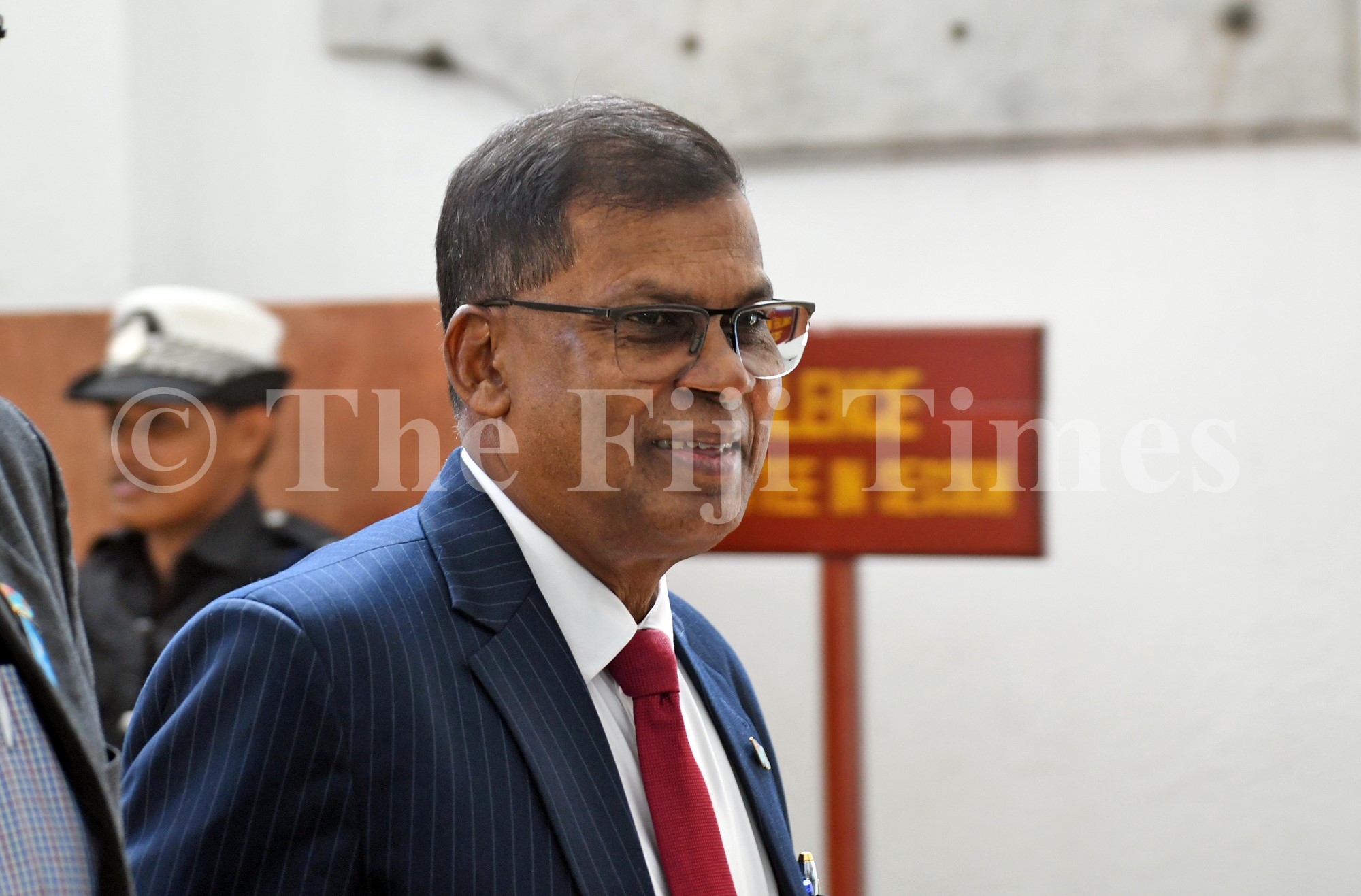National airline Fiji Airways has its own set of processes and guidelines to determine which charter opportunities to take, says Finance Minister Professor Biman Prasad.
While responding to a question posed by Opposition MP Premila Kumar on Fiji Airways’ charter policies and procedures it follows when processing charter requests, Prof Prasad said upon receipt of request, a Fiji Airways charter team gathered all relevant information.
This, he said, included flight dates, number of passengers, special needs, and potential flexibility on dates if aircraft was not available on preferred dates.
Following this an assessment was conducted to determine available resources to support the requested charter aircraft.
“If a request cannot be supported with the available resources, the request is declined and if resources can support the charter, then Fiji Airways proceeds to assessing operational feasibility and cost quote,” he said.
“The goal with any request is to ensure that safety and security are achieved, operational feasibility is confirmed, and revenue covers the cost and justifies the efforts, complexity, and a reasonable amount of risk.”
Prof Prasad said operational feasibility was carried out based on the nature of the charter, complex geography, and short timelines.
“All internal teams such as the operations aircraft crew, safety and security, ground handling and cabin crew are asked to assess the operational feasibility before the cost quote is finalised. A comprehensive analysis is conducted to determine the cost of operating the charter to Fiji Airways. This starts with an assessment of the airline’s related costs for the proposed route such as fuel costs, accommodation costs, catering, insurance, engineering etc.
“This may also include the cost of flight consolidation, opportunity cost, of course to cover additional risk, particularly when operating a charter to destinations Fiji Airways doesn’t normally operate to.”
And once the airline reached an operational cost forecast, a profit margin was added to the cost to finalise the quote, which would then be provided to the customer, who had the option to accept, decline or negotiate. He said Fiji Airways might decide not to negotiate the rate, following which a charter agreement was drawn up upon confirmation from the customer.
Prof Prasad said Fiji Airways had a template charter contract drafted by an in-house legal team, which was subject to negotiation and adjustment on a case-by-case basis. As part of the agreement, a payment timeline was also negotiated with the customer and documented. He said standard charter contract required full payments to be made by no later than 30 days before the first charter flight, however, more complex charters might require initial deposits to be made before the 30-day deadline.
“In a nutshell, each case is assessed individually. And in some cases, Fiji Airways may be willing to accept other payment terms after the charter has occurred. Factors that are considered include credibility, financial reputation of the customer, previous business activity with the customer and an assessment or review of past payment history.”
While the topic of the Israel charter was not brought up specifically because of ongoing investigations by the Fiji Independent Commission Against Corruption (FICAC), Leader of Opposition Inia Seruiratu asked Prof Prasad whether Government was “worried”, presumably about the outstanding $2.5million owing to Fiji Airways.
In response, Prof Prasad said Government would be concerned about any commercial company in which government had a share. However, he said Fiji Airways CEO Andre Viljoen had already communicated to the board that there was a repayment plan.
“We are confident from what the CEO has told the board, and the board has communicated that to me as line minister.
“I’m confident that the company will do what’s in the best interest of the country in the company and the country to run the business in an efficient way. We are confident in the ability of the people and the board to deal with this.”
He said Fiji Airways has a repayment plan with the charterers, whereby a monthly payment plan is expected to start this month. At the end of 2024, Fiji Airways is expected to receive $1m of the $2.5m debt.






